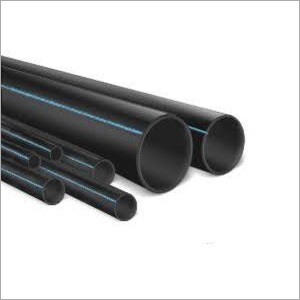Exploring American Plastics HDPE Pipe Manufacturing and Its Role in Modern Infrastructure
Recognizing the Secret Benefits of HDPE Pipeline for Water and Wastewater Management
Using HDPE pipe in water and wastewater administration presents countless benefits that warrant consideration. Its extraordinary sturdiness and long life-span make it a recommended choice for numerous tasks. Furthermore, the material's resistance to corrosion and chemical damages improves its dependability in different environments. However, the benefits prolong past just longevity and resistance. Discovering its cost-effectiveness and ecological effect exposes a lot more engaging reasons for its prevalent adoption in modern-day framework
Phenomenal Sturdiness and Longevity

HDPE pipeline sticks out for its outstanding longevity and long life, making it a preferred option in water administration systems. Constructed from high-density polyethylene, these pipelines can stand up to considerable stress and tension, ensuring trusted performance in time. Their robust nature allows them to endure extreme ecological conditions, consisting of temperature level variations and dirt motions, which can cause other products to fail.
The lifespan of HDPE pipelines often surpasses 50 years, supplying an economical service for towns and markets alike. In addition, the material's light-weight residential properties streamline installment, minimizing labor expenses and durations. This resilience reduces the requirement for regular repair services or substitutes, further enhancing its financial charm.
In water administration applications, the reliability of HDPE pipes means fewer disruptions and improved solution continuity, making them indispensable to lasting infrastructure advancement. The mix of toughness and durability strengthens HDPE's role as a cornerstone in effective water monitoring remedies.

Resistance to Deterioration and Chemical Damage
While several materials catch corrosion and chemical damages gradually, HDPE pipelines display impressive resistance, making them ideal for different water administration applications. This strength stems from the molecular framework of high-density polyethylene, which is naturally non-reactive and does not wear away like metals or break down from direct exposure to rough chemicals. As a result, HDPE is very effective in settings with aggressive substances, such as wastewater systems that might include acids, bases, and organic solvents.
Additionally, HDPE pipes can endure ecological variables such as dirt acidity and saline problems, further improving their viability for varied applications (Midland TX HDPE Pipe Fittings in Stock). Their capacity to preserve architectural honesty with time reduces the threat of leakages and failures, which is important in making certain the security and integrity of water circulation and wastewater monitoring systems. The resistance to deterioration and chemical damages noticeably contributes to the general effectiveness and durability of HDPE piping remedies.
Cost-Effectiveness and Financial Benefits
When thinking about the economic ramifications of water administration systems, the cost-effectiveness of HDPE pipelines ends up being obvious. These pipelines provide reduced installment and upkeep costs contrasted to conventional products like steel or concrete. Their light-weight nature streamlines transport and installment, causing lowered labor expenditures. In addition, HDPE pipelines exhibit a long life expectancy, frequently surpassing half a century, which converts to fewer replacements and long-term cost savings.
The resistance of HDPE to corrosion and chemical damage decreases the requirement for costly repair work and substitutes. The pipelines also support reliable water flow, decreasing power prices linked with pumping systems. By reducing leakages and water loss, HDPE pipelines contribute to considerable financial advantages for towns and markets alike. Overall, the preliminary financial investment in HDPE piping can produce considerable monetary returns over the life-span of the water management system, making it a prudent choice for sustainable infrastructure development.
Ecological Sustainability and Decreased Effect

Versatility and Flexibility in Installment
Due to the fact that of their one-of-a-kind buildings, HDPE pipelines use exceptional convenience and adaptability in installment, making them ideal for a wide variety of applications. Their light-weight nature allows for much easier handling and transport, reducing labor costs and installment time. HDPE pipelines can be curved and formed to fit different surfaces and project requirements, which is especially useful in testing environments.
Furthermore, their resistance to corrosion and chemical damage enables for setup in diverse setups without the need for specialized protective coatings. The capability to fuse joints produces a continuous, leak-free system, improving the total honesty and reliability of the installation. HDPE's flexibility likewise suits ground activity, lowering the risk of damages in locations susceptible to moving soil. Overall, these qualities make HDPE pipes not just functional yet additionally a recommended option for water and wastewater administration systems.
Regularly Asked Inquiries
How Does HDPE Pipe Compare to PVC in Water Management Applications?
HDPE pipe uses premium flexibility, resistance to corrosion, and longevity contrasted to PVC. Its lighter weight promotes less complicated installation, while its long life expectancy decreases substitute costs, making HDPE a recommended choice in water monitoring applications.
What Is the Life Expectancy of HDPE Pipeline Under Normal Conditions?
Under typical problems, HDPE pipes can have a life expectancy varying from 50 to 100 years. Their longevity and resistance to rust contribute to their long-lasting performance in various applications, making them a dependable option for framework.
Are HDPE Piping Recyclable After Their Life Span?
Yes, HDPE pipes are recyclable after their life span. custom hdpe pipe manufacturing Midland TX. They can be refined and repurposed right into brand-new items, significantly decreasing ecological influence and promoting sustainability within the sector, making them an environment-friendly selection for piping solutions
What Is the Setup Process for HDPE Piping?
The installment process for HDPE pipes includes website prep work, trenching, pipeline combination or mechanical signing up with, backfilling, and stress testing. Proper methods assure a resilient and reliable system for carrying water and wastewater effectively.
Can HDPE Pipeline Be Used for Both Safe And Clean and Non-Potable Water Systems?
Yes, HDPE pipes can be used for both potable and non-potable water supply. Their versatility, sturdiness, and resistance to rust make them ideal for different applications, making sure risk-free and effective transportation of water in various contexts.